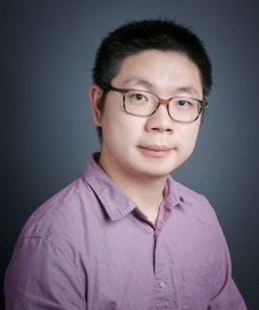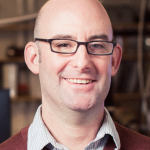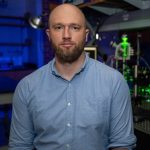Abstract:
Interdisciplinary research integrates information, data, techniques, tools, perspectives, concepts, and/or theories from two or more disciplines or bodies of specialized knowledge to advance fundamental understanding or solve problems. In this talk, I will share our recent work on exploring the interdisciplinary frontiers of electrochemistry, including (1) developing the quantum dot electrogelation method for high-performance NO2 gas sensing, (2) discovering the electrosynthetic method for creating controlled grain boundaries for catalysis applications, and (3) establishing alternating current electrolysis method for controlled organic synthesis.
About the Speaker:
Bio-Sketch: Dr. Long Luo is currently the Carl R. Johnson Associate Professor of Chemistry at Wayne State University. He received his B.S. (2009) in applied chemistry from Beijing University of Aeronautics and Astronautics and his Ph.D. (2014) in chemistry from the University of Utah under the guidance of Prof. Henry S. White. Before joining Wayne State University in 2017, he worked as a postdoctoral fellow in the laboratory of Prof. Richard M. Crooks at the University of Texas at Austin. He received the Alfred P. Sloan Research Fellowship, National Science Foundation CAREER Award, NIH Maximizing Investigators’ Research Award (MIRA), The Royce W. Murray Young Investigator Award from the Society for Electroanalytical Chemistry, and Wayne State University Academy of Scholars Junior Faculty Award, and was selected as Chem Comm Emerging investigators, Analytical Bioanalytical Chem., Young Investigators, Nanoscale Emerging Investigators, and a Langmuir inaugural Early Career Advisory Board Member. The research goal of his laboratory is to address the grand challenges of our times in environment, energy, and health by designing, discovering, synthesizing, and utilizing new functional materials and molecules and by developing novel analytical methods, tools, and devices.



